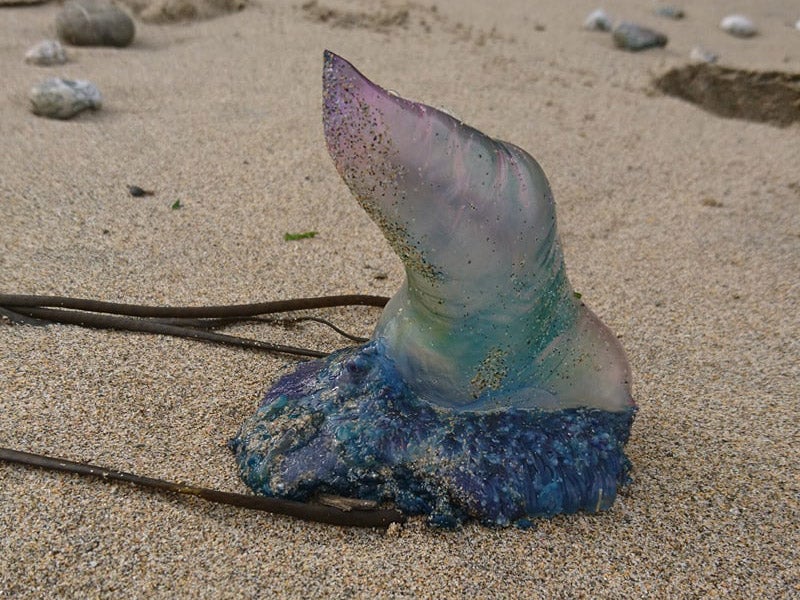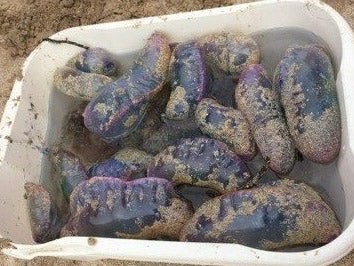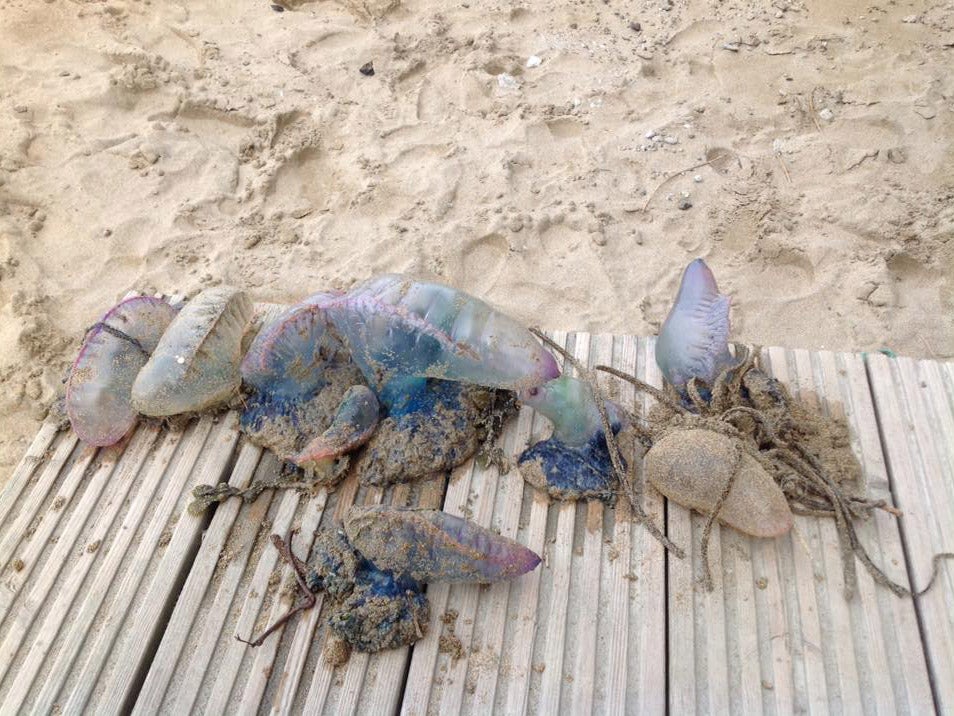Cornish beach on alert after terrifying Portuguese Man O'War wash up en masse
Cornwall Wildlife Trust records 144 sightings in just three days
Your support helps us to tell the story
From reproductive rights to climate change to Big Tech, The Independent is on the ground when the story is developing. Whether it's investigating the financials of Elon Musk's pro-Trump PAC or producing our latest documentary, 'The A Word', which shines a light on the American women fighting for reproductive rights, we know how important it is to parse out the facts from the messaging.
At such a critical moment in US history, we need reporters on the ground. Your donation allows us to keep sending journalists to speak to both sides of the story.
The Independent is trusted by Americans across the entire political spectrum. And unlike many other quality news outlets, we choose not to lock Americans out of our reporting and analysis with paywalls. We believe quality journalism should be available to everyone, paid for by those who can afford it.
Your support makes all the difference.Beaches in Cornwall have seen a record number of Portuguese Man O’War washing ashore after strong winds.
Sightings of the sea creature which deliver a painful and sometimes lethal sting have increased to “unprecedented” levels along the county’s northern coastline, according to the Cornwall Wildlife Trust.
The influx caused a section of the Perranporth beach to be shut for several hours after more than a dozen were found.
The Trust confirmed its Marine Strandings Network had received 144 reports of sightings in three days, compared to the three received in 2016.
“This is an unprecedented event and we urge the public to be cautious and to keep an eye out for unusual species being stranded," said marine awareness officer Matt Slater.
“We may see other rare warm water species washing up.”
Due to the volume found on the Perranporth shoreline the RNLI decided to close the area.

A spokesman for the RNLI said: “Due to the number and potential hazard to water users, as a precaution the RNLI closed the bathing area... This isn’t unusual, particularly after windy conditions.
“Our lifeguards have also been keeping a close surveillance on other beaches.”

Despite its appearance the Portuguese Man O’War is not a jellyfish but a marine animal known as a siphonophores.
The venom in its tentacles is used to paralyse small fish and can deliver a severely painful stings for humans and can even cause death to small children and from allergy-like symptoms in adults.
If sighted, the RNLI advised people not to touch and if someone is stung they must seek assistance from the RNLI lifeguards on duty.

The treatment involves removing the tentacles by hand or spraying with seawater, followed by immersion in hot water to relieve symptoms.
It reassured that “in the majority of cases further medical treatment will not be necessary” but those with any complications or serious stings should be advised to seek further medical assistance.
Members of the public are being encouraged to ring the Cornwall Wildlife Trust’s hotline to report strandings on 0345 2012626.

Join our commenting forum
Join thought-provoking conversations, follow other Independent readers and see their replies
Comments